The Ultimate Guide to Turnkey PCB Assembly Services
Author: Jack Wang
Introduction to PCB Assembly
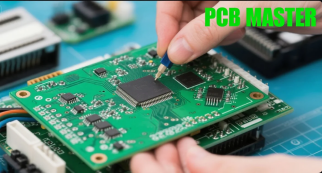
PCB assembly is a vital step in the creation of modern electronic devices, involving the precise placement and soldering of components onto a printed circuit board (PCB). This process transforms a bare board into a functional circuit, ready for integration into a wide range of products. Full turnkey PCB assembly services have revolutionized the industry by offering a comprehensive approach that covers every aspect of PCB fabrication, assembly, and testing. By leveraging turnkey PCB assembly services, businesses can entrust the entire process—from sourcing components to final assembly and quality assurance—to a single, experienced provider. This not only streamlines the assembly process but also ensures the highest quality standards are met at every stage. Outsourcing PCB assembly to a reputable manufacturer allows companies to focus on innovation and product development, while benefiting from expert assembly services, reduced costs, and faster turnaround times. Whether for prototypes or large-scale production, turnkey PCB assembly services deliver reliable, efficient, and high-quality solutions for any circuit board project.
Understanding Turnkey PCB Assembly
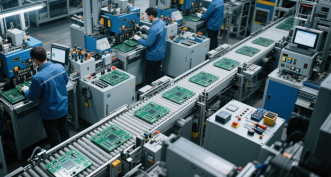
**·**Turnkey PCB assembly is a service that encompasses all stages of PCB production, ensuring precision in project completion.
Turnkey PCB assembly streamlines the whole process from design to delivery, consolidating all steps under one provider.
**·**Turnkey solutions play a crucial role in the PCB manufacturing process by creating an efficient and streamlined experience for clients.
**·**The turnkey PCB assembly process includes multiple stages such as design, component sourcing, assembly, testing, and final delivery.
**·**By managing all stages from design to delivery, turnkey PCB assembly providers assemble the boards internally, ensuring quality and efficiency, which significantly reduces lead times and enhances project efficiency.
Definition of Turnkey PCB Assembly
**·**Turnkey PCB assembly is defined as a service where a supplier manages all facets of PCB production, from procurement to assembly.
**·**An all-in-one solution where Cirexx handles procurement and assembly of components.
**·**Turnkey PCB assembly involves procuring all necessary parts and components for PCB assembly.
**·**Turnkey PCB assemblies are categorized into two main types: full and partial.
**·**Types of turnkey PCB assemblies include full turnkey, which covers every aspect of the assembly process, and partial turnkey, where clients supply some components.
Consignment assembly is an alternative approach where clients supply the necessary parts, in contrast to turnkey services where the provider sources all components.
Components of Turnkey PCB Assembly
**·**Turnkey PCB assembly services typically encompass a range of functions including sourcing parts, assembly, testing, and shipping.
**·**Companies offering turnkey PCB assembly often emphasize that they handle every aspect of the assembly process in-house to ensure quality.
A turnkey pcb assembly service typically includes design review, component sourcing, assembly, testing, and programming, providing an end-to-end solution.
Benefits of Turnkey PCB Assembly Services
**·**Turnkey PCB assembly offers a comprehensive solution that allows companies to focus on innovation rather than assembly logistics. Turnkey PCBs provide a single-provider solution, eliminating the need for clients to coordinate with multiple vendors.
**·**Shorter lead times, fewer errors, and a single point of contact are some of the key advantages of turnkey PCB assembly. Turnkey PCB assembly helps small businesses and startups avoid the burden of maintaining a large inventory of components.
**·**The turnkey PCB assembly process typically includes multiple steps that streamline production, ensuring efficiency from start to finish.
**·**Turnkey PCB assembly is essential in various industries for its ability to streamline the manufacturing process and improve efficiency.
**·**Turnkey PCB assembly is widely utilized across diverse industries, enhancing production efficiency and product quality.
Cost Efficiency
**·**Utilizing turnkey solutions often leads to better pricing on components due to established relationships with suppliers.
**·**Using turnkey solutions can lead to decreased manufacturing costs due to bulk buying and reduced operational complexity.
**·**Turnkey PCB assembly providers often negotiate bulk discounts on components to lower costs for clients. Medium businesses can achieve a significant amount of cost savings by leveraging turnkey PCB assembly providers' bulk purchasing power.
**·**Turnkey assembly often reduces costs by consolidating multiple manufacturing stages into a single service, minimizing separate vendor fees.
**·**Turnkey PCB assembly often allows companies to minimize their production costs through economies of scale.
**·**This assembly approach is especially beneficial for medium businesses handling higher volume production, as it allows them to manage costs or utilize specific parts already in their inventory.
Time Savings
**·**Turnkey assembly can significantly accelerate product delivery by reducing the time spent on transitioning between different production phases.
**·**Turnkey PCB assembly services are specifically designed to minimize turnaround time, ensuring rapid project completion and efficient service delivery.
**·**The streamlined nature of turnkey assembly significantly cuts down the time required for production cycles.
**·**Integrating multiple production phases with turnkey services can significantly cut down the overall time to market.
**·**Turnkey assembly can minimize transition times between different stages of production.
**·**In the consumer electronics sector, turnkey PCB assembly allows for rapid production cycles, accommodating the fast-paced demand for new products.
**·**In consumer electronics, turnkey PCB assembly enables faster market entry by reducing complexities in sourcing and production.
**·**In the realm of consumer electronics, turnkey PCB assembly allows manufacturers to rapidly produce high-volume products while maintaining quality and reducing time-to-market.
**·**The consumer electronics industry benefits from turnkey PCB assembly through increased efficiency in production, allowing for rapid scaling to meet high demand.
Quality Assurance
**·**Automated optical inspection is a standard testing method used to detect defects in PCB assemblies. X-ray and ray inspection technologies are also used to detect hidden defects in PCB assemblies.
**·**Automated Optical Inspection (AOI) is a common method used to verify the quality of surface mount assemblies.
**·**Advanced testing methods, including automated optical inspection, are crucial for ensuring the reliability of assembled PCBs. Real-time data monitoring is essential for maintaining quality control throughout the assembly process.
Types of Turnkey PCB Assemblies
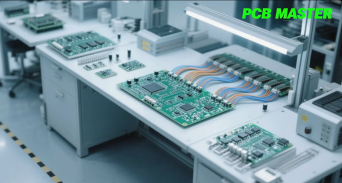
**·**Turnkey PCB assemblies are available to meet diverse project needs.
Turnkey PCB assembly services are tailored to meet the unique requirements of each PCB project, providing end-to-end solutions from concept to completion.
**·**Full turnkey PCB assembly provides comprehensive services including design, parts procurement, assembly, testing, and shipment.
**·**Partial turnkey PCB assembly involves the client providing some components or managing certain aspects of the assembly process.
**·**Both full and partial turnkey PCB assemblies offer unique benefits depending on the project requirements and client capabilities.
Full Turnkey PCB Assembly
·Full turnkey PCB assembly is characterized by a complete service package, including design, component procurement, and assembly.
·The main advantage of choosing full turnkey PCB assembly is process consolidation with a single purchase order.
·Full turnkey PCB assembly is noted as the method of choice in the industry.
·Full turnkey PCB assembly uses automated machine assembly to ensure consistency and precision.
·The quality of PCB assembly is enhanced by certified operators and state-of-the-art technology.
·There are two methods of turnkey PCB assembly: half and full, with full being the more comprehensive option.
Partial Turnkey PCB Assembly
·In partial turnkey assembly, clients typically provide some components or manage certain phases of the project themselves.
·In partial turnkey assembly, clients retain control by providing certain components or deciding on specific manufacturing steps.
PCB Fabrication Process
The PCB fabrication process is a multi-stage journey that transforms a design concept into a tangible, high-performance printed circuit board. It begins with the careful design of the PCB layout, followed by the selection of suitable materials such as copper, fiberglass, and solder mask to ensure durability and performance. Leading PCB manufacturers utilize advanced technologies like surface mount technology (SMT) and automated optical inspection (AOI) to achieve precise assembly and rigorous quality control. After the initial design, a prototype is produced and thoroughly tested to validate functionality and reliability. Once approved, the manufacturing process moves forward, with each step—etching, drilling, plating, and soldering—carried out under strict standards. Turnkey PCB manufacturing services offer a one-stop solution by managing all aspects of fabrication and assembly under one roof, eliminating the need for multiple vendors and ensuring a seamless, efficient process. This integrated approach not only accelerates production but also guarantees consistent quality across all PCBs, making turnkey solutions the preferred choice for businesses seeking reliable and efficient PCB manufacturing services.
Turnkey PCB Assembly Process
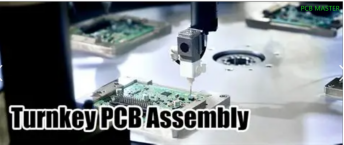
·The initial step in the turnkey PCB solution process involves a thorough requirement-gathering discussion to ensure all specifications are clear.
·Prototyping in the design phase allows for early detection of potential flaws before full-scale production begins, thus improving overall quality.
·In turnkey PCB assembly, the assembler checks specifications against application requirements before starting the project to prevent potential errors.
·Using turnkey PCB assembly can significantly streamline the manufacturing process for businesses, enhancing efficiency and accountability by consolidating tasks under one provider.
Design and Prototyping
**·**A manufacturer with extensive experience can provide insightful recommendations and streamline the PCB design process.
**·**A manufacturer with a solid track record in PCB production can provide valuable insights to enhance your design.
**·**Utilizing a modular design approach allows for easier adjustments to PCB layouts without extensive rework.
Special attention is given to the design and assembly of flex and rigid-flex circuits to prevent issues such as delamination.
**·**Utilizing modular design principles allows for easier modifications during the production phase without significant delays.
**·**Establishing a flexible design process allows teams to adapt to last-minute changes without extending project timelines.
**·**Efficient sourcing of components is essential for maintaining project timelines and minimizing costs in PCB assembly.
Parts Procurement
·The lead time for turnkey PCB assembly can range from 1 to 15 days, depending on the availability of parts.
·Full turnkey assembly minimizes the time spent switching from phase to phase, resulting in a more efficient assembly process.
Assembly and Testing
·Top-tier PCB assembly manufacturers invest in state-of-the-art equipment like automated optical inspection systems and advanced SMT lines to enhance production quality.
·High-quality PCB manufacturing requires modern machinery, such as automatic drilling machines and advanced inspection tools, to ensure precision and reliability.
·State-of-the-art manufacturing equipment is essential in maintaining high quality and precision in PCB assembly operations.
·Investing in modern machinery and technology significantly enhances production quality and efficiency.
·Turnkey PCB assembly services frequently implement rigorous testing protocols to ensure product reliability and compliance.
·Turnkey PCB assembly services implement rigorous quality control measures, including automated testing, to ensure reliability and adherence to standards.
·Advanced quality checks, including automated optical inspections, enhance the reliability of turnkey PCB assemblies.
·Regular audits and inspections at various stages of the manufacturing process are essential to maintain product quality.
·Implementing automated inspection systems can significantly enhance the accuracy and speed of quality control in PCB assembly.
·Included in PCB assembly testing are In-Circuit Testing, Functional Testing, Aging Testing, Temperature and Humidity Testing, and Drop Testing.
PCB Manufacturing Solutions
Modern PCB manufacturing solutions are designed to provide businesses with a streamlined, cost-effective path to producing high-quality printed circuit boards. Turnkey PCB assembly services stand out by offering a full spectrum of capabilities, from initial design and component sourcing to assembly, box build assembly, and conformal coating. By consolidating the entire process under one provider, turnkey assembly eliminates the complexities of managing multiple vendors, reduces shipping delays, and ensures a single point of contact for project management. This approach is not only cost effective—thanks to bulk purchasing and optimized logistics—but also enhances product quality and reliability. Full turnkey assembly services are equipped to handle projects of any scale, making them ideal for both small businesses and large enterprises. With a strong focus on intellectual property protection, instant quoting, and the highest quality standards, turnkey PCB assembly services empower companies to save money, accelerate time-to-market, and maintain full control over their PCB projects. Whether you need rapid prototyping or high-volume production, turnkey PCB manufacturing delivers the flexibility, efficiency, and peace of mind that modern businesses demand.
Choosing the Right Turnkey PCB Manufacturer
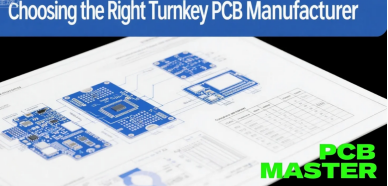
·Selecting a reliable turnkey PCB manufacturer is crucial for ensuring the success of your project and obtaining high-quality products.
·Choose manufacturers with extensive experience and technical expertise to benefit from their industry knowledge and capabilities.
·Ensure the manufacturer has modern facilities and state-of-the-art equipment, which are essential for maintaining high-quality PCB assembly standards.
·Effective customer support and clear communication throughout the project lifecycle are vital for a positive manufacturing experience.
Experience and Expertise
·Choosing manufacturers with extensive experience in PCB assembly ensures high-quality and reliable outcomes.
·Manufacturers with a strong track record in PCB assembly often possess deeper insights into complex production processes and the ability to foresee challenges.
·Manufacturers with extensive experience often bring critical problem-solving skills and insights that can help avoid common challenges in PCB assembly.
Advanced Facilities and Equipment
·State-of-the-art manufacturing facilities directly contribute to improved production efficiency and quality.
·They do not outsource any functions and have a well-equipped facility.
·Regular audits of manufacturing processes can identify potential quality issues and ensure compliance with standards.
Customer Support and Communication
·Effective communication with a PCB manufacturer ensures that your needs are understood and met throughout the project.
·Effective communication and support from a PCB manufacturer can significantly streamline project management and help address any issues promptly during the production process.
·Effective communication and ongoing support from the manufacturer can significantly enhance project efficiency and resolve issues promptly.
·Robust customer support ensures effective communication throughout the assembly process, contributing
Common Challenges and Solutions in Turnkey PCB Assembly
·Selecting a PCB manufacturer with proven capabilities in assembly and design processes is essential for project success.
·Selecting a trustworthy turnkey PCB manufacturer involves evaluating their production capabilities, quality control measures, and customer feedback.
·It's crucial to find a manufacturer that offers a balance between cost and quality to ensure reliable PCB assembly without compromising on standards.
·It's crucial to select a PCB manufacturer that demonstrates technical capability and has a strong track record in the field.
Supply Chain Management
·Supply chain disruptions can lead to critical component shortages, impacting the entire manufacturing process.
·Effective parts procurement strategies focus on balancing quality and cost to optimize the supply chain.
·Utilizing on-demand manufacturing and integrated sourcing can help mitigate the risks associated with supply chain issues by providing flexible production capabilities.
Design Changes
·Last-minute design changes can lead to increased costs and delays if not managed properly within a turnkey assembly process.
·Effective communication with manufacturers is essential for implementing design changes without derailing the production schedule.
Quality Control
·Maintaining high quality standards is vital as poor quality control can lead to product recalls and reputational damage.
·Implementing a robust quality assurance process, including regular inspections and testing, helps ensure that the final products meet the required specifications.
Applications of Turnkey PCB Assembly
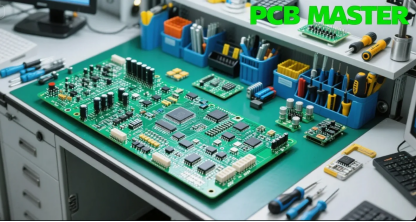
·Turnkey PCB assembly is utilized across a variety of sectors including consumer electronics, medical devices, and automotive industries, offering tailored solutions to meet specific needs.
·Turnkey PCB assembly is widely utilized in industries such as consumer electronics, medical devices, and automotive, where efficient production processes are crucial.
·Turnkey PCB assembly is integral to various sectors, efficiently meeting the specific needs of industries like consumer electronics, medical devices, and automotive.
·When selecting a turnkey PCB manufacturer, it's essential to assess their track record in delivering projects similar to yours, ensuring they understand the specific requirements of your industry.
Consumer Electronics
·Turnkey PCB assembly is crucial for the consumer electronics sector, enabling quick production cycles and efficient use of resources.
·The all-in-one nature of turnkey PCB assembly simplifies the manufacturing process, which is essential for meeting the rapid demand in consumer electronics.
With turnkey PCB assembly, manufacturers can rapidly adjust and respond to changing market trends in the consumer electronics industry.
·Cost efficiency is a major advantage of turnkey PCB assembly, particularly for high-volume production runs, as it reduces overhead and allows for bulk purchasing of components.
·Turnkey PCB assembly services significantly save time in manufacturing, enabling faster project completion and meeting tight deadlines.
·The integration of assembly and testing in turnkey services ensures that high volume production maintains rigorous standards of quality.
·Utilizing advanced quality control measures in turnkey PCB assembly helps ensure the reliability and functionality of consumer electronics at scale.
·Quality assurance is critical in consumer electronics to reduce the risk of product failures and maintain a positive brand reputation.
Medical Devices
·The medical device sector relies on turnkey PCB solutions to ensure compliance with stringent regulations and high-quality standards.
·The medical device industry relies on turnkey PCB assembly to meet rigorous compliance and regulatory standards, ensuring safety and efficacy.
·In medical device manufacturing, turnkey solutions ensure compliance with strict regulatory standards by managing quality control and documentation processes.
·In medical device manufacturing, turnkey PCB assembly ensures compliance with strict regulatory standards, helping to maintain safety and reliability in complex devices.
·For medical device manufacturing, turnkey solutions are crucial as they ensure compliance with strict regulations while streamlining the production process.
Automotive Industry
Turnkey PCB assembly supports the automotive sector by providing reliable components designed to withstand harsh conditions and enhancing overall vehicle performance.
Turnkey PCB assembly supports the automotive industry by providing reliable electronic components that meet durability requirements.
The automotive industry benefits from turnkey PCB assembly by ensuring the production of reliable electronic components that meet stringent performance and durability requirements.
Turnkey PCB assembly plays a vital role in the automotive industry by providing reliable, durable electronic components essential for modern vehicles.
FAQs
Q. What is one-stop PCB assembly?
A. One-stop PCB assembly is an integrated service where the supplier takes full responsibility for the entire PCB production process, including design review, component procurement, assembly, testing, logistics, and other stages. Customers do not need to coordinate with multiple suppliers; they can complete the entire process from concept to finished product through a single service provider, significantly simplifying production management.
Q. What are the advantages of choosing one-stop PCB assembly?
Core advantages include:
A. Cost-effectiveness: Reduces component costs and supplier management expenses through bulk purchasing and process integration, leveraging economies of scale to save costs.
Time savings: Reduces transition time between different production stages, shortens lead times, and is particularly suitable for industries sensitive to time-to-market, such as consumer electronics.
Quality control: Service providers ensure product consistency and reduce defect rates through automated inspection (e.g., AOI) and end-to-end quality control.
Focus on core business: Customers can concentrate their efforts on product innovation and market expansion without handling complex production logistics.
Q. What steps are included in the one-stop PCB assembly process?
A. The typical process includes:
Requirement communication: Clarifying design specifications, performance requirements, and delivery timelines.
Design & prototyping: Optimizing PCB design, creating prototypes for testing, and identifying potential issues early.
Component procurement: Procuring compliant components based on requirements to ensure supply chain stability.
Assembly & testing: Completing assembly using techniques like SMT, and verifying quality through in-circuit testing (ICT), functional testing, etc.
Delivery & after-sales: Completing packaging and logistics, and providing necessary technical support.
Q. How to choose the right one-stop PCB assembly service provider?
A. Key factors to evaluate:
Experience & qualifications: Whether they have service cases in the relevant industry and if the technical team possesses professional expertise.
Facilities & equipment: Whether they are equipped with advanced SMT production lines, AOI inspection equipment, etc., to ensure production precision.
Supply chain management capability: Ability to mitigate risks like component shortages and guarantee delivery stability.
Customer service: Communication efficiency and ability to promptly respond to design changes or issue feedback.
Why choose PCBMASTER: https://www.pcbmaster.com/why
Join us: https://www.pcbmaster.com/login